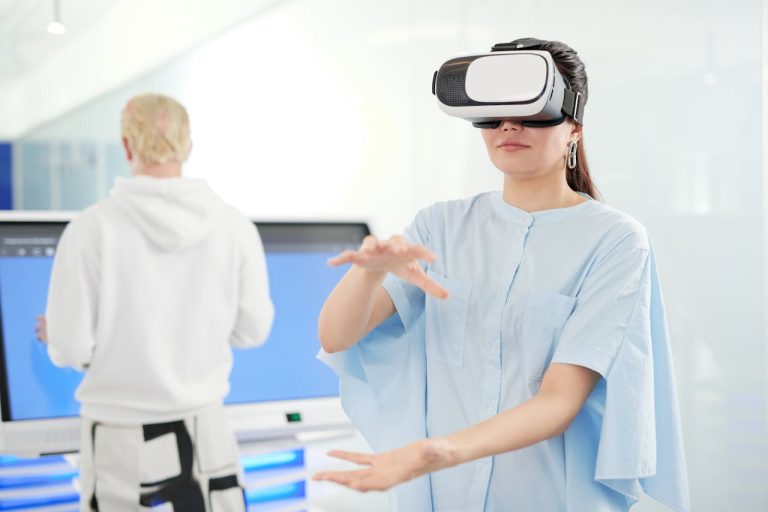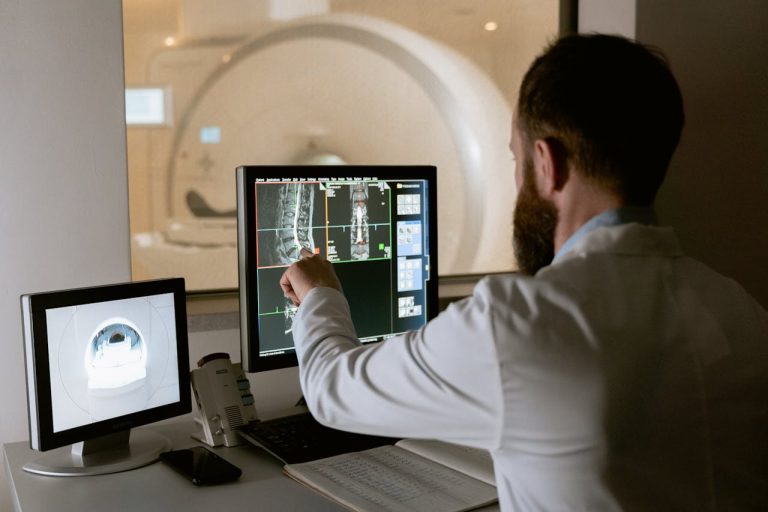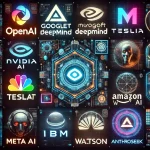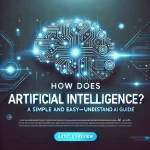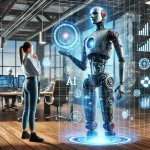How AI is Transforming Healthcare – What’s Next?
Over the past decade, artificial intelligence (AI) has made remarkable progress in healthcare. According to McKinsey & Company, the global AI healthcare market exceeded $15 billion in 2024 and is expected to reach $188 billion by 2030, with an annual growth rate of over 40%.
AI is revolutionizing medical diagnostics, personalized treatments, drug development, and even surgery. It has accelerated disease detection and improved diagnostic accuracy. For example, Google’s DeepMind AlphaFold has helped scientists predict the structures of over 200 million proteins, leading to groundbreaking drug discovery advancements.
But what will AI mean for healthcare in the next 5–10 years?
- Will AI replace doctors?
- Or will it become their most valuable assistant?
Let’s explore how AI is shaping the future of medicine.
1. Breakthroughs in AI Medical Diagnostics: Is AI More Accurate Than Humans?
1.1 AI in Medical Imaging and Diagnosis
Traditionally, doctors rely on CT scans, MRIs, and X-rays for diagnosis, but human error leads to misdiagnoses in 20%–30% of cases. AI is changing that:
- Breast Cancer Detection: Google Health’s AI system detects breast cancer 5% more accurately than radiologists.
- Eye Disease Diagnosis: DeepMind’s AI identifies diabetic retinopathy with 94.5% accuracy, matching top ophthalmologists.
1.2 AI and Personalized Treatment
AI tailors treatments based on genetics, medical history, and lifestyle. For example, IBM Watson Health analyzes 15 million medical studies to recommend personalized cancer treatments.
💡 Key Insight: AI is a powerful diagnostic assistant, but it cannot replace doctors’ clinical judgment. Instead, it enhances medical decision-making and improves efficiency.
2. AI’s Revolutionary Impact on Drug Development
Developing a new drug traditionally takes 10–15 years and costs up to $3 billion. AI is disrupting this process:
- Insilico Medicine used AI to identify a new anti-fibrotic drug candidate in just 46 days.
- BenevolentAI leveraged AI to discover 10 potential COVID-19 treatments in only 4 months.
How AI Accelerates Drug Development:
- Predicts protein structures (e.g., AlphaFold) → Identifies potential drug targets.
- Analyzes millions of compounds → Finds the best drug candidates.
- Simulates human reactions to drugs → Reduces costly clinical trials.
💡 Key Insight: Within 10 years, AI could cut drug development time by 50% and significantly lower costs, making life-saving treatments available faster.
3. AI Medical Assistants: Will AI Replace Doctors or Assist Them?
3.1 AI vs. Human Doctors: Can AI Replace Physicians?
AI is already providing basic medical consultations:
- Ada Health AI has given medical guidance to 12 million users.
- ChatGPT Medical Version assists in answering common health questions but still requires human review.
Despite AI’s progress, patients still prefer human doctors. A 2024 Pew Research study found that 78% of patients trust human doctors over AI diagnoses.
💡 Key Insight: AI is not replacing doctors—it’s becoming a “super assistant” that helps analyze data and optimize workflows, but it cannot replace human empathy and ethical decision-making.
4. AI Healthcare Trends in the Next 5–10 Years
| Future Trend | Impact on Healthcare | Estimated Timeframe |
|---|---|---|
| AI-assisted diagnostics become the industry standard | Faster, more accurate disease detection | 2025–2027 |
| AI significantly improves drug development success rates | Shorter development cycles, lower costs | 2026–2029 |
| AI-driven remote healthcare services expand | Increased accessibility to medical care | 2027–2030 |
🔮 Prediction: In the next decade, AI will not replace doctors, but it will become an integral part of modern healthcare, improving efficiency and accessibility.
5. FAQ: Common Questions About AI in Healthcare
Q1: Can AI completely replace doctors?
No, AI assists doctors but cannot replace them. AI lacks empathy, ethical judgment, and the ability to make complex decisions that require human intuition.
Q2: Is AI-generated medical advice reliable?
AI can be highly accurate when trained on quality data, but it is not infallible. It should be used as a tool to assist doctors, not as a replacement for professional medical advice.
Q3: How is AI improving healthcare accessibility?
AI-powered chatbots and virtual doctors help underserved communities by providing 24/7 medical guidance, reducing the need for in-person visits.
How Will AI Shape the Future of Healthcare?
AI is revolutionizing medical diagnosis, drug development, and personalized medicine. Over the next 5–10 years, AI will not replace doctors, but it will significantly enhance medical efficiency, reduce costs, and improve patient care.
What Do You Think?
Do you see AI as a doctor’s best assistant or a potential replacement for human doctors? Share your thoughts in the comments!


